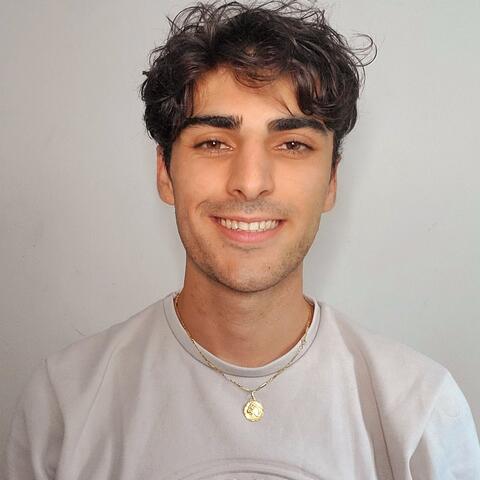
Théo Bouloudani
A biology student and member of the iGEM 2023 team
Our goal was to find a way to clean up soil with a method using synthetic biology.
Currently a second-year Master’s student in Immunology, Genetics and Oncology, Théo Bouloudani joined, during the first year of his Master’s, the International Genetically Engineered Machine (iGEM) team at Sorbonne University. With the other members of the team, he won the gold medal at the iGEM international synthetic biology meeting which was held in Paris from the 2-5 November.
Why did you embark on the iGEM adventure?
Théo Bouloudani:
Last year, during the start of a Master’s in Molecular and Cellular Biology, the previous iGEM team from Sorbonne University introduced me to this synthetic biology competition. The principle was to set up a scientific project and presenting it during an international competition. I immediately wanted to join the new team to participate in this type of project and obtain complementary skills.
Coming from a double degree in life sciences and chemistry at the University of Côte d'Azur in Nice and knowing few people in Paris, I also wanted to meet people who are also passionate about science. It was an opportunity to pursue my passion with people who look like me.
What was your role in the team?
T. B.:
The team was made up of several members spread across different areas: Human practices, biology, modeling, a Wiki... During the handover with the old team, elections took place. I was appointed treasurer of the association. My role was to seek funding with the help of other members of the team, to place orders and pay invoices (including competition registrations and insurance).
I was also involved in the biology group by participating in the development of the project and carrying out some of the experiments in the laboratory, as well as in the WIKI pole, by participating in the creation of our site to summarize our scientific project.
Describe to us the objectives and challenges of the PseudoDetox soil remediation project that you presented.
T. B.: Ecology being a major subject in our society, we wanted to work on a project relating to the environment and bioremediation, a depollution technique using micro-organisms to decontaminate the soil.
When the new team was created, different projects were under discussion. We voted for the project which suited the majority and which seemed the most feasible with the means we had and the time allocated before the competition (around 10 months). Our choice therefore came across the PseudoDetox project.
During our research we discovered that a large portion of the soil in the world and in France was polluted by molecules called polycyclic aromatic hydrocarbons (PAH). The objective of our project was to find a way to decontaminate these soils with a method using synthetic biology to eliminate these molecules.
To do this, we used the bacterium Pseudomonas Putida, a very common bacterium, capable of degrading PAHs through different enzymatic reactions. We also found that adding biosurfactants to this bacteria—lipids (rhamnolipids and sophorolipids) capable of solubilizing hydrophobic molecules—facilitated the handling of PAHs by the bacteria. We therefore wanted to improve Pseudomonas Putida by making it produce these two types of biosurfactants to more effectively degrade PAHs in soils.
How is this project innovative?
T. B.: The PseudoDetox project stands out for its innovative nature in soil depollution. By exploiting synthetic biology, our team chose to improve the bacterium Pseudomonas putida to degrade PAHs effectively, which are pollutants prevalent in soils globally. The integration of biosurfactants, such as rhamnolipids and sophorolipids, constitutes an innovative approach to increase the solubilization of PAHs, thus facilitating their degradation. This project also stands out for its commitment to solving a crucial and contemporary environmental problem.
How did the project go up until the competition week?
T. B.: The handover with the previous iGEM team took place in December 2022, thus allowing the formation of the new team. Up until January 2023, we discussed different projects, and with the help of our teachers—Marco Da Costa, Pierre Crozet and Frédérique Peronnet—we chose the PseudoDetox project. We then began to describe our project while improving it gradually thanks to our research, and to seek funding starting in February.
In parallel with our studies, we set up the different missions of each center (Human practices, Biology, Modeling and Wiki). At the beginning of June, once the exams were completed, we were able to start the experiments in the laboratory where Pierre Crozet works. We carried out our experiments starting in June until the beginning of October. At the same time, the members of the different centers worked on carrying out their missions: the development of a computer model, creation of a magazine making it possible to understand what synthetic biology is, presentations in schools, posts on social networks to raise awareness among as many people of all ages as possible.
months of September and October were particularly intense as the deadline approached. Finally, from November 2 to 5, the Grand Jamboree was held at the Paris Exhibition Center, bringing together more than 400 teams and 4,000 students from around the world. We defended our project in front of the judges and presented PseudoDetox to the different teams and international visitors.
What does this competition and this gold medal represent?
T. B.: This competition was an opportunity to present our project in front of synthetic biology experts after almost a year of work. It was also an opportunity to meet students who are passionate about this discipline like us, but also professionals and to expand our network. We are very proud to have been able to represent Sorbonne University during this international competition and to have obtained, like the previous team, a gold medal which rewards a year of intensive work and investment alongside our studies.

Grand jamboree iGEM 2023
